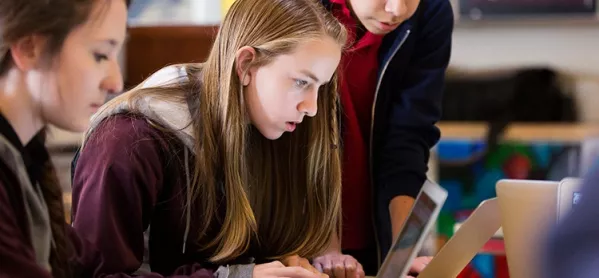”‘Language changes,’ good one, Miss!” - this is what a Year 9 student of mine casually laughed three years ago.
One of his classmates had commented on Shakespeare’s language in Romeo and Juliet and I’d explained that, well, language changes. The student quoted above thought I was making a joke.
At the time, it didn’t really strike me as odd, but over the past three years, I’ve had more and more encounters of a similar nature: so many students believe that the world is ‘fixed’.
We all know about fixed mindsets, but this was the first time I’d really considered that some students see the world and the subjects we teach as fixed, unchanging. So often, I’ve seen students who seem to think that they are passive parts of the world, with no place to act or influence it.
Across my own time at school, the country welcomed in New Labour, the world welcomed a new millennium and everything and anything seemed possible. We were taught that the world and the future were ours to be shaped and formed into whatever we wanted them to be. The BBC’s Tomorrow’s World told us of brilliant new technologies coming into our homes, we all knew someone who’d built their own computer and the magazines we read featured real teens. We - young people - were not only part of the world, but could change and influence the world, and education (education, education!) was going to be our way to reach influential positions and places.
Unreal comparisons to reality TV
Contrast that with today: reality TV shows us lavish lifestyles most of us will never experience, technological development is advanced way beyond the accessibility of most teenage bedrooms and, post-recession, we are fed a narrative of how things ‘used to be better’. In our classrooms, the new GCSE specs contain a much heavier curriculum than we’ve had before and measurable progress is demanded through increasingly regular assessments and data.
Is it any wonder that our students feel isolated from the wider world? What place can they possibly have in a world of Silicon Valley techies and enhanced, augmented beauties on magazine covers?
Belief that one can change the world has to come from those around us - raising children in school cultures that celebrate ideas, initiative and innovation has to be a priority.
But it doesn’t seem like it is.
I wonder how much our politicians, sat in their plush offices surrounded largely by Oxbridge graduate civil servants and public school alumni, understand what it means for a young person to feel they have no place in the world, to feel a complete lack of agency.
It makes me angry that initiatives to encourage community links, independent thought and enrichment - things vital to empowering students - are so often hampered by strapped school budgets and teacher exhaustion. Even new centrally led initiatives all too quickly become token gesture which result in students knowing definitions of skills (resilient, risk, rigour) and how to develop them, but not actually being given the time or opportunity to developing them.
If we want our students to be well-rounded young people instead of well-qualified job candidates, we have to stop pushing the world onto them and start enabling them to have a part in it.
“Language changes” may have seemed a joke to that Year 9, but the students’ view that the world is fixed and beyond their influence is far from it. If we don’t start empowering young people, what kind of world will we leave to them and who will pick up the pieces when they don’t know - or don’t believe they know - what to do with it?
The writer is an English teacher in the East Midlands




